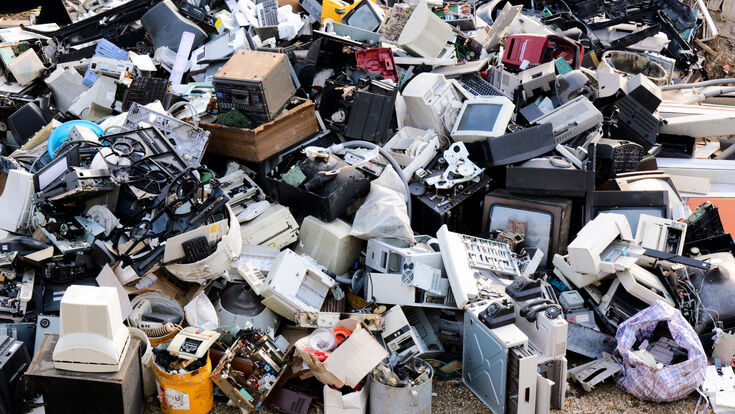E-Waste : Switzerland and Ghana work together to eliminate global E-waste

Both countries are set on working out a political solution to illegal e-waste dumping.
Currently the Basel Convention regulates the movement of e-waste across international borders, ultimately preventing developed countries from dumping their waste in less developed countries. Nevertheless, on a yearly basis, the EU and US ‘leak’-the official term in use for illegal waste exports- two million tonnes of discarded electric waste into third countries.
Ghana is considered a prime destination country for e-waste with the largest landfill, Agbogbloshie, receiving close to 40,000 tonnes of electronic waste a year. Said e-waste landfill has been termed ‘the most polluted area in the world’, even ahead of Chernobyl, by environmental NGO Blacksmith Institute.
In order to promote greater sustainability across the e-waste management chain, Switzerland and Ghana launched the Sustainable Recycling Industries Project (SRI) in 2015. At the moment, the project is in its second phase (2019-23). Financially supported by Switzerland, the joint endeavour is to strengthen e-waste infrastructure as well as raise awareness around proper e-waste management among manufacturers and importers. It also entails teaching informal recyclers how to extract copper from old devices without necessarily burning them.
US-based BAN, however, finds the Swiss-Ghanaian proposal lacking in some respects. In a report to that effect, the organisation argued that the project’s focus on preventing illegal e-waste exports, regardless of whether or not the waste in question is hazardous deflects from the real dilemma-what constitutes waste and what non-waste.
The ‘Repairables Loophole’ included in the Basel Convention allows parties to export hazardous electronic equipment to less developed countries by claiming that said waste is not ‘e-waste’ but raw material that can be repaired. The intent to repair absolves countries from taking responsibility for their e-waste. As all e-waste is naturally hazardous, specifying that ‘hazardous’ waste cannot be exported anymore does little to prevent manufacturers from circumventing the problem by labelling their broken electronic scrap as repairable ‘non-waste’.
The Basel Convention on the Control of Transboundary Movements of Hazardous Wastes and their Disposal is an international treaty governing how waste is moved around the world. It was first implemented in 1992.
